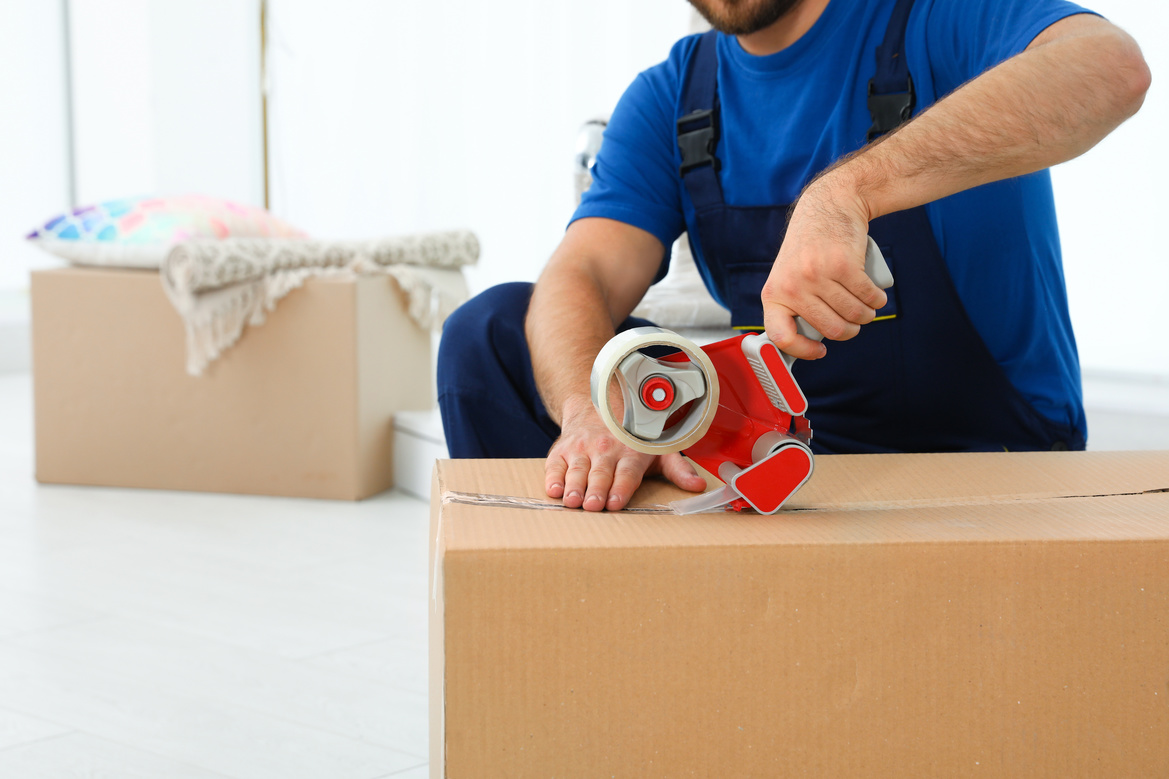Making the decision to move cross country is a big one. Not only do you have to figure out how you’re going to get all of your stuff from point A to point B, but you also have to make sure that you’re prepared to live on your own in an unfamiliar place. The first step for living on your own is finding a place to live and getting a job in the new city. Get utilities set up, and furnish your new place. Also, you need to organize your budget and learn all about the cost of living.
How to Live on Your Own When Moving Cross Country?
Are you about to move across the country? If so, there are a few things you need to know in order to make the transition as smooth as possible. One of the most important things is learning how to live on your own. In this blog post, we’ll give you some tips on how to do just that, so stick around to get all the information.


Is It Worth Living on Your Own?
If you’re thinking about booking long-distance moving services from a cross-country moving company and relocating to a new state, you must be wondering – is it worth the trouble? Yes, there are plenty of reasons why it might be worth it to live on your own. For starters, you’ll have more control over your living situation.
When you live on your own, you’ll be able to choose where you want to live, how big or small your new home will be, and what kind of amenities you want. If you have roommates, there’s a chance that they might not want to renew their lease at the same time as you or that they might want to move somewhere else entirely. When you’re in control of your living situation, you won’t have to worry about those kinds of things.
If you share a place with roommates or family members, there’s always the chance that someone will make noise when you’re trying to sleep or that they’ll have friends over when you just want some alone time. Instead, you’ll be able to make all the noise (or none at all) that you want without having to worry about disturbing anyone else.


How Much Does It Cost to Live on Your Own?
You’re done with college and don’t want to move back home – what now? Obviously, you have to try and make it on your own – but what about the living-on-your-own expenses list? It surely won’t be short, so you need to organize your budget accordingly. So, how much money do you need to live on your own:
Rent
Living with roommates is certainly something you’ll need to get used to if you reside in a big city. If you’re totally opposed to sharing a home with others, be prepared to pay exorbitant prices to live in a space a little bigger than a walk-in closet. You’ll incur a lot of unforeseen costs to equip your flat as soon as you move in. Additionally, you should have at least some emergency savings before signing a lease and becoming responsible for monthly rent payments. You certainly don’t want to fall behind on your rent payments, especially not right away.
Utilities
Utility costs are not always included in the rent. If your utilities are not covered, there are other bills to take into account. Depending on the sort of heating you have, heat may or may not be included in the rent. Depending on the efficiency of your flat, the cost of forced air, gas, or radiator heating can reach $100 per month. Make sure you specify that the water included in your rent includes both cold and hot water. Your energy bill will probably be the largest of your monthly expenses; it can range from about $40 to as much as $100.
Furniture
Apartments don’t typically come furnished (at least not ones that are reasonable), so there’s another high cost to take into account. Many of the necessary furniture pieces may be found for not too much money at thrift shops or big-box retailers like Target and Walmart. Make sure you purchase a brand-new mattress if you decide to do so.
Renter's insurance
A renter’s policy can protect your possessions from theft and damage for a few hundred dollars a year and may even pay you money to help you move if your apartment becomes uninhabitable.
Food
You may not be aware of the monthly expense if you haven’t constantly had to pay for your groceries, and that’s not even including all the dining out. According to research by the USDA, the typical monthly food budget for an individual is about $180.
Cable/internet
If you’re extremely lucky, the rent for your apartment will include both cable and internet. If you’re at all fortunate, it will at least include Wi-Fi. Depending on the provider, internet costs typically run around $50 per month.
How to Save up Money When Living on Your Own?
Saving money to move can be quite tricky, and organizing a moving budget is also not easy. After you move to a new city, you still have to watch your budget. Still, with a little bit of effort and planning, you can keep your expenses under control and start putting away money for the future. Here are some tips to get you started.
- Make a budget, and stick to it – Track your income and expenses for a month, so you have a clear idea of where your money is going. Then, set some spending limits for yourself in each category.
- Cut unnecessary expenses – Reducing or eliminating unnecessary expenses can free up a lot of money that you can put towards savings.
- Automate your savings – One of the best ways to ensure that you save regularly is to automate the process by setting up automatic transfers from your checking account into a savings account or investment account.
- Use cash instead of credit cards – Using cash instead of credit is a great way to stay within your budget limits. When you use cash, you’re more mindful of how much money you’re actually spending because you see the physical bills leaving your hands.
- Shop around for better deals – Whenever possible, take the time to shop around for better deals on things like insurance, utility bills, and groceries. You may be surprised how much money you can save by simply taking the time to compare prices before making a purchase.
How Does Living on Your Own Affect Your Mental Health?
What effects does living alone have on one’s mental health and anxiety about the move? The excitement of moving out on your own is palpable. It’s a chance for you to begin building the life in a big city you envision for yourself, and for many people, it’s a chance to begin living authentically. However, overcoming the difficulties of independent life can sometimes be stressful.
At first, you could feel overtaken by all the changes. After all, when you don’t have a roommate to help out, you are now solely responsible for paying your bills. You have to find time for your new job, maintain a social life and find new friends, do errands, and take care of the duties around your first apartment, on top of trying to manage the financial aspects of living alone in another state.
When you don’t feel like you’re doing everything correctly, it’s easy to develop a perfectionist attitude and become critical of yourself. Everyone has a learning curve as they figure out how to live independently, so it’s vital to remember that no one is perfect in this regard. Be kind to yourself. Of course, a mental health professional can help you feel better if you feel too stressed, lonely, anxious, or sad when living alone and without being surrounded by loved ones.


How to Move Out and Start Living on Your Own?
Hiring long-distance movers can improve your cross-country moving experience significantly – it’s basically a relocation essential. Do you want to make your relocation a stress-free process? Of course, each of us has a unique set of skills, and many of us are undoubtedly capable of planning a move flawlessly on our own.
Still, you can be sure that it won’t be without challenges and endless hours of relocation preparation. There will be much more going on than just packing for a move. Obviously, this is a personal choice, and you must determine what suits you best and how much effort you’re ready to put in when moving to another state.

Storage
Cross Country Moving Company is the most trusted name in auto industry in the country.

Auto Transport
Cross Country Moving Company is the most trusted name in auto industry in the country.
Moving Insurance
Cross Country Moving Company is the most trusted name in the relocation industry in the country.
Should You Use Various Cross-Country Moving Services?
Booking professional cross-country moving companies can offer more advantages than you might think, in addition to reducing your worry and anxiety in the weeks leading up to the moving day. You might have forgotten about the factor of saving time. Imagine how many hours you can save if you have a relocation crew to help you with packing your belongings into boxes or wrapping furniture.
Since you wouldn’t have to carry the entire load, the likelihood that you will forget to pack some items is reduced. In addition to cross-country moving service, packing assistance is an excellent idea. While we’re on the subject, don’t forget to book a storage service in case you have a few extra boxes you don’t know what to do with.


Should You Find a Job Before the Move?
Finding a new job before you move is definitely a good idea, so you want to start looking for a job early. Starting to work right away will not only give you the necessary stability but also help you get used to your new surrounding much more quickly. If you’re looking for some tips on how to find a job, take a look at the video below.
How to Meet New People When You Are Moving Cross Country?
Relocating to another city can be an exciting but daunting prospect. One of the bigger challenges you may face is making friends in your new surroundings. Even if you’re the outgoing type, it can be tough to put yourself out there and meet new people. But don’t worry, we’re here to help! Here are our top tips for meeting new people when you move cross-country.
Get involved in the community
One of the best ways to meet new people is to get involved in your community. This could mean joining a local sports team, volunteering for a local non-profit, or attending community events. Not only will you be able to meet other like-minded individuals, but you’ll also have the opportunity to give back and make your new community a better place.
Join a gym or fitness class
Working out, joining a gym, or taking a fitness class are all great ways to stay healthy and fit, but they can also help you meet new people who share your interests. You can also take this opportunity to try something new that you’ve always wanted to do, like yoga or rock climbing.
Attend local cultural events
If you’re looking for something more low-key than a fitness class, attending local cultural events is a great option. Many cities have regular art walks or film festivals that are free and open to the public. This is also a great way to learn more about the history and culture of your new city or town.
Go out and explore
One of the best things about living in a new place is all the new things there are to see and do. Make sure to take some time each week to explore your surroundings and check out all that your new city has to offer. Who knows, you might just stumble upon your new favorite coffee shop or restaurant – and make some new friends along the way!
Take Some Time, and the Move Will Be Worth the Trouble
Relocating can be a great way to jumpstart your life. If you’re considering a move, keep the many benefits of moving in mind. A change of scenery can be good for your mental health, networking is important for advancing in your career, and you may be able to find a job that’s a better fit for you. Moving can help you break out of a rut and jumpstart your career growth. So if you’re thinking about a move, don’t let the potential drawbacks stop you. The benefits may just outweigh the costs.





